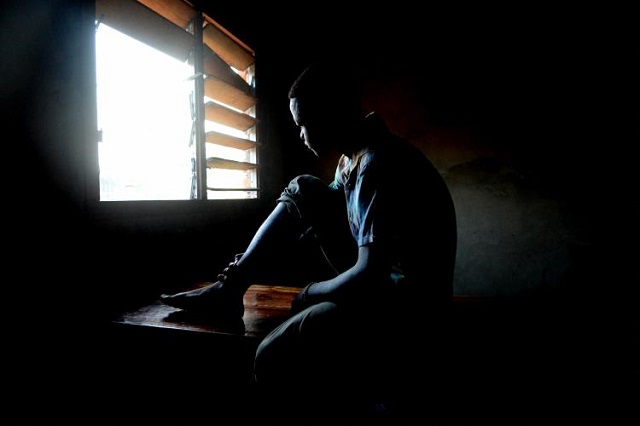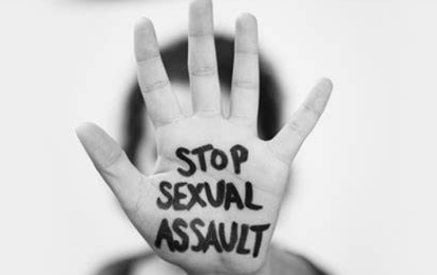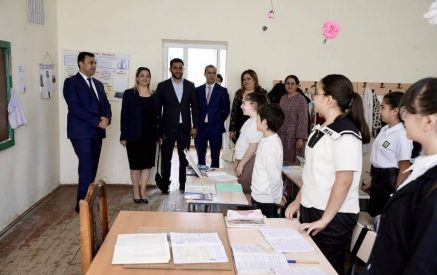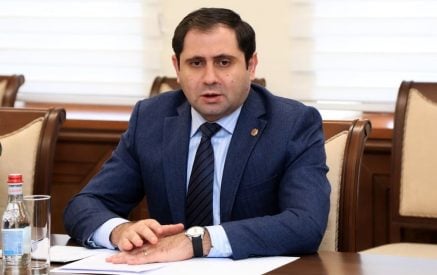“Children have a key role to play in building a present and a future where peace will prevail. It is our responsibility to enable them to be such agents of change”, says EU-UN statement on International Day against the Use of Child Soldiers
It´s 2021, and yet tens of thousands of children continue serving as soldiers in around 20 conflicts worldwide. Far from ameliorating the situation, the COVID-19 pandemic has exacerbated children’s vulnerability to suffer grave violations in armed conflicts, in particular forced recruitment by State and non-State actors to take part in hostilities. On International Day against the Use of Child Soldiers, the EU and the UN stand together to make sure that all children, wherever they are, experience a childhood free from violence and with access to education.
“The impact of the COVID-19 pandemic is daunting: poverty and lack of opportunities increase even further push and pull factors for child recruitment (…). Education opportunities, already disrupted by war and displacement, are further vanishing”, reads the joint statement by EU High Representative, Josep Borrell, and UN Special Representative of the Secretary-General for Children and Armed Conflict, Virginia Gamba, to mark the date.
The lack of access to education due to anti-COVID measures in conflict countries is posing an added risk for the worsening of the situation, as education is crucial in preventing the recruitment and use of children.
Read also
Situation of children in armed conflicts in 2019 According to the latest UN Secretary-General's report on children and armed conflict, in 2019: -25,000 grave violations against children in 19 situations were committed. -Some 7,747 children, some as young as 6, were verified as having been recruited and used. Among those, 90% were used by non-State actors. -Some 10,173 children were verified as having been killed (4,019) and maimed (6,154). -927 attacks on schools (494) and hospitals (433) were verified. -Rape and other forms of sexual violence continued to be vastly underreported, with 735 verified cases. -1,683 children were abducted, with over 95 per cent of cases perpetrated by non-State actors, mainly in Somalia, the Democratic Republic of the Congo and Nigeria. -A total of 13,200 children were separated from non-State actors and armed forces globally.
Supporting reintegration: still a challenge
As vital as taking preventive measures for child soldiers’ recruitment, is developing strong reintegration programmes that support them in their return to society.
“Armed forces and armed groups continue to recruit and use children, tearing them away from their families and communities, cruelly stripping away their dignity and destroying their lives and their future. Only a fraction of those released are benefiting from reintegration programmes”, reads the joint statement.
In the past five years, UNICEF reports that over 55,000 boys and girls were released and disassociated from armed forces and armed groups globally, however only 70% (42,000) of these children could benefit from reintegration packages.
In September 2018, the UN Special Representative launched together with UNICEF the Global Coalition for Reintegration of Child Soldiers to understand how the international community could more effectively support children who have exited armed forces and groups.
“Reintegration programmes must be gender-responsive, include mental health and psychosocial support, education and vocational training, and access to civil registry, identification documents and to justice. Without comprehensive programmes, poverty, the lack of opportunities and stigmatization may result in the recruitment and rerecruitment of children”, reads the UN Secretary-General’s report on children and armed conflict 2020.
How does the EU protect child soldiers?
The protection of children in armed conflict is a priority for the EU. The EU’s Action Plan on Human Rights and Democracy (2020-2024) adopted in November 2020 sets out concrete objectives to do so. This political commitment is supported by development and humanitarian projects, including in Colombia, Myanmar, Nigeria, Pakistan, Somalia, South Sudan, Syria and Yemen. These projects contribute to preventing and responding to violence, provide psychosocial support, assist in family tracing and reunification, and support the release and reintegration of children associated with armed forces and groups.
In recognition of the crucial role of education, the EU allocates 10% of its humanitarian aid budget to education in emergencies across the world, amounting to €115 million in 2020.
European Union





























































